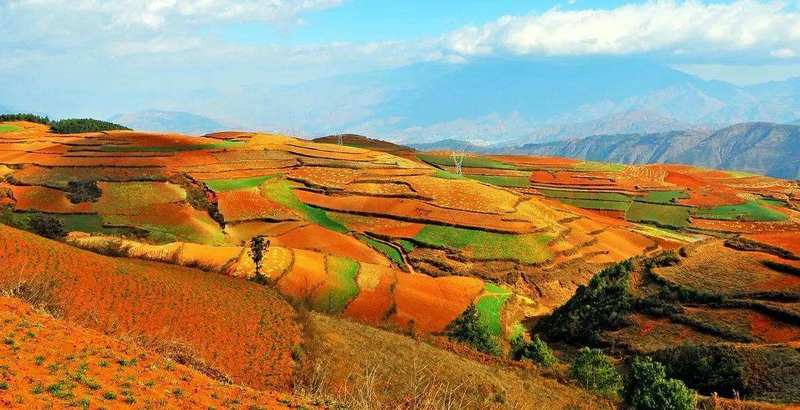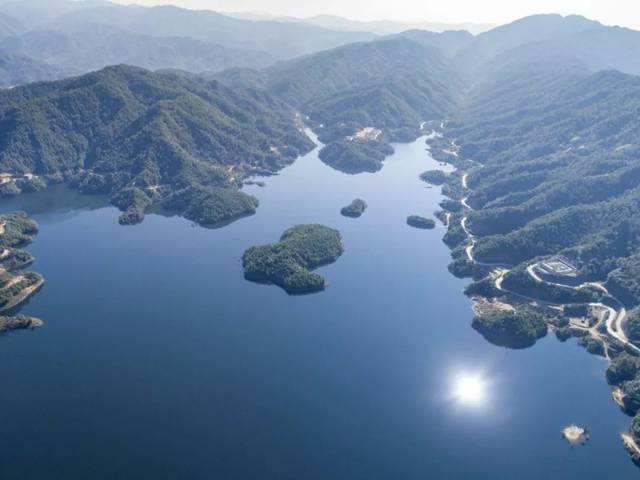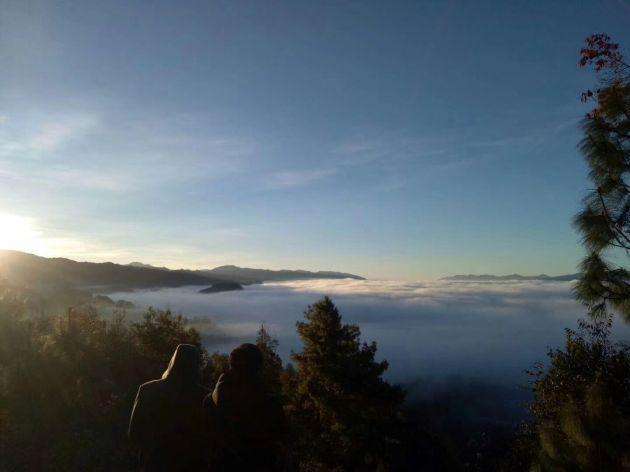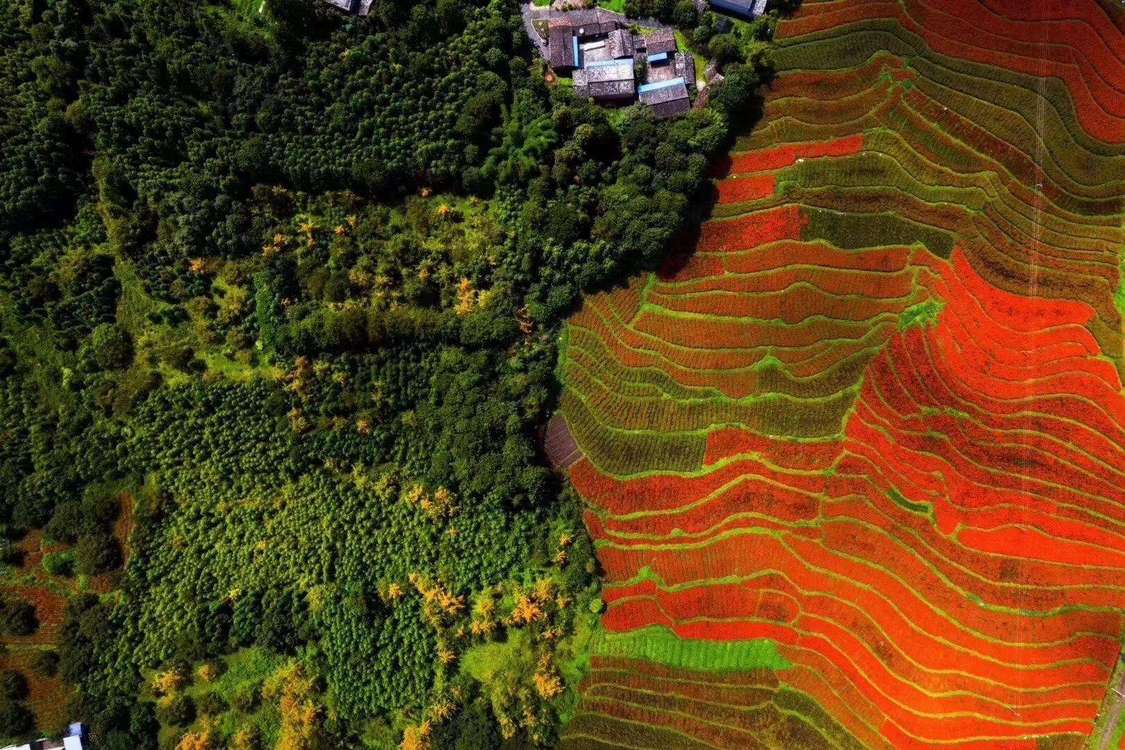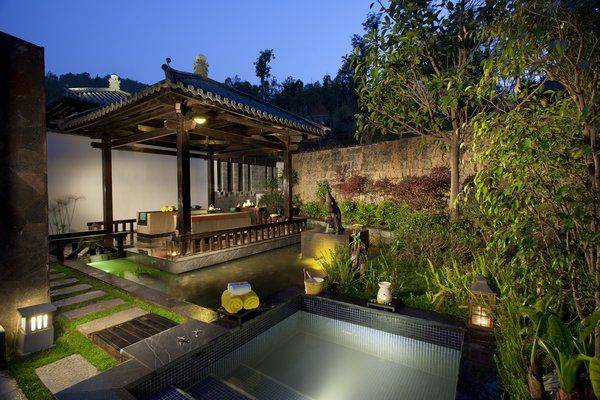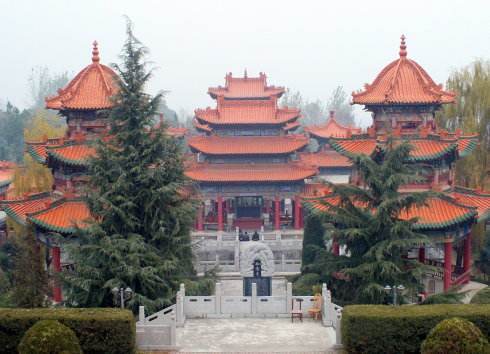Houqiao Town is connected to Myanmar by mountains and rivers. It is the southwesternmost small Lisu village in China. The Binlang River flows through the town. The Danzha Village in the north of the town is picturesque, with snow-capped peaks surrounding it every winter and spring. The green crops and golden rapeseed flowers in the fields complement each other. The Binlang River is lined with gorges and filled with bizarre rocks, resembling a natural sculpture park. The Knife Pole Festival, held on the eighth day of the second lunar month each year, is unique to the Lisu ethnic group. Visitors can enjoy performances such as 'climbing knife poles' and 'walking through fire,' as well as ethnic songs and dances like 'Jumping Ga,' 'Three-string Dance,' 'Mouth Harp,' and 'Mountain Songs.' The Houqiao Port within the town is a major gateway in southwestern China. Passing through the port leads directly into Myanmar.
Houqiao Langya Mountain
Houqiao Langya Mountain is located in the northwest border of Tengchong County. The stone peaks are majestic and spectacular, resembling a giant barrier. It has been a strategically important military site since ancient times. The mountain is named Langya Mountain because its peaks pierce the sky like swords and the strange rocks in the mountain resemble wolf teeth. Langya Mountain is divided into two peaks: the upper peak, called Da Langya, with an altitude of 3741.4 meters, and the lower peak, called Xiao Langya, with an altitude of 2202.3 meters. The stone peaks of Da Langya are layered and towering, appearing and disappearing in the misty clouds. Sometimes they resemble a gathering of tigers and leopards, and other times they look like giant eagles fighting for food, with bizarre shapes and rugged rocks.
About half an hour drive from Tengchong, you will reach Jietou Township, where there is a vast sea of rapeseed flowers. In early spring, around February, the rapeseed flowers bloom so profusely that they seem to burst out, creating a stunning view. Among the sea of flowers, there are some beekeepers, and the honey they produce is of very high quality!
Huangguaqing Hot Spring
Huangguaqing Hot Spring is the primordial doctor of heaven and earth. It is the best doctor given to us by nature, and the best prescription given to us by the natural world. The main therapeutic effects are radon and hydrogen sulfide. Radon springs are the most medically valuable type of mineral spring, known as the 'essence of mineral springs.' Radon springs can deepen sleep, improve blood circulation, regulate heart rhythm and blood pressure, and have benefits for diabetes, gout, and rheumatoid arthritis. They can also enhance immunity. The half-life of radon is 3.8 days, so it does not accumulate in the body and is harmless to humans. Upon entering Huangguaqing, you can smell a very strong rotten egg odor, which is the smell of hydrogen sulfide. Hydrogen sulfide has significant therapeutic effects on psoriasis, neurodermatitis, eczema, and other conditions.
Tengchong Yaowang Palace was first built in the sixth year of the Tianqi era of the Ming Dynasty (1626 AD) by people from the medical community. At the end of the Kangxi era of the Qing Dynasty, it was renovated and expanded by the abbot Zi Weng, giving the building a gourd-shaped layout. Yaowang Palace not only has a cleverly designed layout and unique architectural features, but it is also an important witness to the long history of the traditional Chinese medicine industry in Tengchong.
